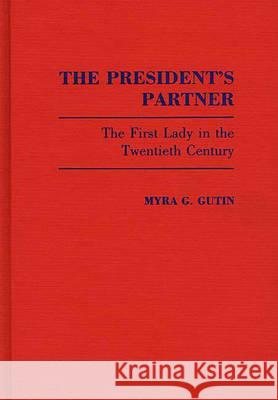The President's Partner: The First Lady in the Twentieth Century » książka
The President's Partner: The First Lady in the Twentieth Century
ISBN-13: 9780313253355 / Angielski / Twarda / 1989 / 205 str.
Radical political and social changes, together with the development of radio and television, have dramatically altered the role of the President's wife since the early years of this century. Gutin's book examines the public and private personas of twelve presidential wives in the context of those changes. Focusing on the First Lady's public communications, the author looks at the roles that each of these women has filled, from ceremonial figure and White House hostess to presidential surrogate, campaigner, and independent advocate for special causes.
Although several presidential wives have taken advantage of the freedoms and opportunities enjoyed by contemporary women, a number of First Ladies have chosen to remain within the limits of more traditional roles. The author first discusses Florence Harding, Grace Coolidge, Bess Truman, and Mamie Eisenhower, whose public participation in the presidency consisted of acting in a ceremonial capacity and serving as social hostesses in the White House. Lou Hoover, Jacqueline Kennedy, and Pat Nixon communicated with the public more directly and on occasion used the media as a means of publicizing projects in which they had an interest. Not until Eleanor Roosevelt, however, did the First Lady begin to exploit the power of the White House fully. Mrs. Roosevelt--and after her, Lady Bird Johnson, Betty Ford, and Rosalynn Carter--frequently used every communication outlet available to speak in behalf of special projects and causes. Nancy Reagan shifted from a role restricted to ceremonial and White House social functions to active participation as a political surrogate and independent advocate. Providing a wealth of factual detail as well as careful analysis, this book will enrich any study of America's recent political history.











